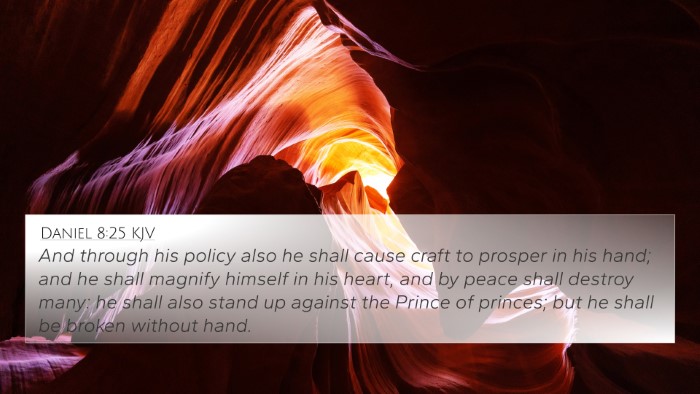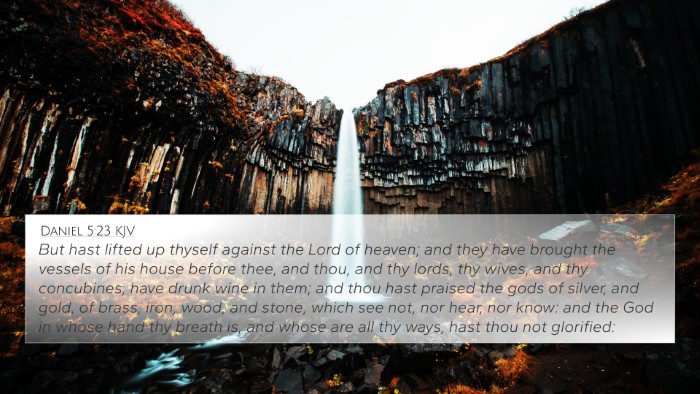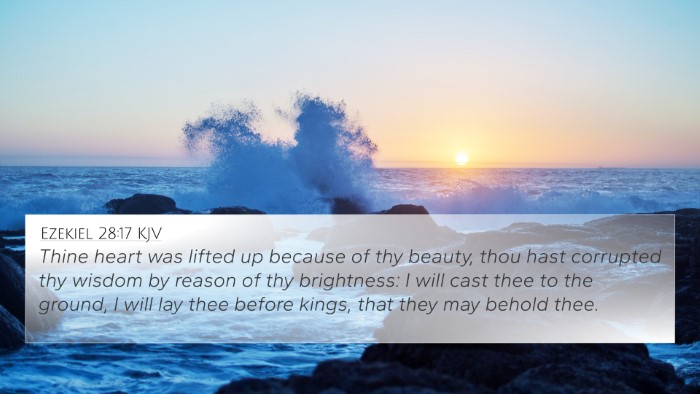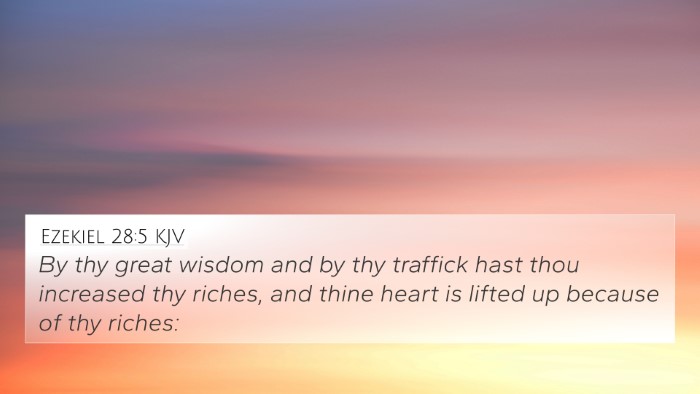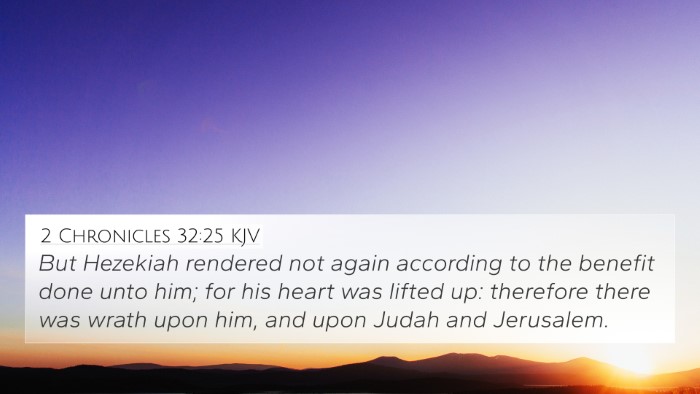Understanding Daniel 11:12
Daniel 11:12 presents a prophetic vision laden with historical significance and spiritual implications. This verse speaks to the rise and fall of kingdoms, symbolizing the larger narrative of divine governance and the ultimate sovereignty of God. Here, we see the aftermath of the king of the north's battles and his mighty gatherings. The verse reads:
"And when he hath taken away the multitude, his heart shall be lifted up; and he shall cast down many ten thousands: but he shall not be strengthened by it."
Commentary Insights
This analysis draws from the insights of public domain commentaries by Matthew Henry, Albert Barnes, and Adam Clarke.
Insights from Matthew Henry
Matthew Henry interprets this verse in light of the pride and arrogance that comes with power. He emphasizes that the king’s heart being "lifted up" signifies a dangerous hubris often resulting from military victories. This pride leads to complacency as he fails to acknowledge that his strength comes from God, not his own abilities.
Albert Barnes' Commentary
Albert Barnes offers a view on the phrase "he shall not be strengthened by it." He points out that while the king may achieve momentary triumphs, these victories do not equate to enduring or divine strength. The implications here suggest that human authority is transient, reminding readers that reliance on oneself or worldly power ultimately leads to downfall.
Adam Clarke's Perspective
According to Adam Clarke, the scenario depicted in Daniel 11:12 fits within the larger context of prophecy concerning the Maccabean period and the struggles faced by the Jewish people. Clarke emphasizes the significance of interpreting these verses within their historical framework, as they reveal God’s providential hand at work amid human conflicts.
Key Themes and Spiritual Lessons
- Human Pride and Its Consequences: The verse illustrates how success can lead to arrogance, which can cloud judgment and lead to ruin.
- Divine Sovereignty: It reminds believers that all authority and strength ultimately come from God, and reliance on earthly power is futile.
- Historical Context of Prophecy: Understanding this verse within the Maccabean context enriches its meaning, revealing the tensions in Israel's history.
Bible Verse Cross-References
For a more profound understanding, consider these related Bible verses that highlight similar themes:
- Isaiah 10:15: "Shall the axe boast itself against him who chops with it?" - A reminder of human limitations against divine tools.
- Proverbs 16:18: "Pride goes before destruction, and a haughty spirit before a fall." - A direct warning about the dangers of pride.
- Jeremiah 9:23-24: "Let not the wise man glory in his wisdom..." - An admonition for humility and reliance on the Lord.
- 1 Corinthians 10:12: "Therefore let anyone who thinks that he stands take heed lest he fall." - A caution against overconfidence.
- Psalm 20:7: "Some trust in chariots and some in horses, but we trust in the name of the Lord our God." - Emphasizing trust in God over worldly means.
- Luke 12:19-20: "And I will say to my soul, 'Soul, you have ample goods laid up for many years...'" - A parable addressing false security from wealth.
- James 4:6: "God opposes the proud but gives grace to the humble." - Reinforcing the theme of humility before God.
Connections Between Bible Verses
The interconnections between different Scripture passages enhance our understanding of God’s message:
Each verse referenced above not only connects to Daniel 11:12 but also illustrates core biblical themes regarding pride, the transient nature of human authority, and the need for divine reliance.
Praise for Cross-Referencing
Engaging in cross-referencing biblical texts serves as an invaluable tool for deeper understanding. Various tools are available for those wishing to delve into a comprehensive Bible cross-reference study, including Bible concordances and cross-reference guides. These resources allow for a more thorough exploration of thematic bible verse connections.
How to Use Bible Cross-References
Learning how to find cross-references in the Bible can significantly enrich one’s study experience. Tools for cross-referencing bible study can help elucidate how different scriptures support each other and provide a comprehensive view of biblical themes.
For example, if someone is studying themes of pride and humility, they might start from Daniel 11:12 and explore connections to Proverbs, James, and others to form an in-depth understanding of the biblical stance on these attitudes.
Conclusion
In summary, Daniel 11:12 depicts the interplay of earthly power and divine sovereignty, warning against pride and human presumption. Through comparative bible verse analysis and cross-referencing, scholars and believers alike can uncover profound truths that resonate throughout the scriptures.







